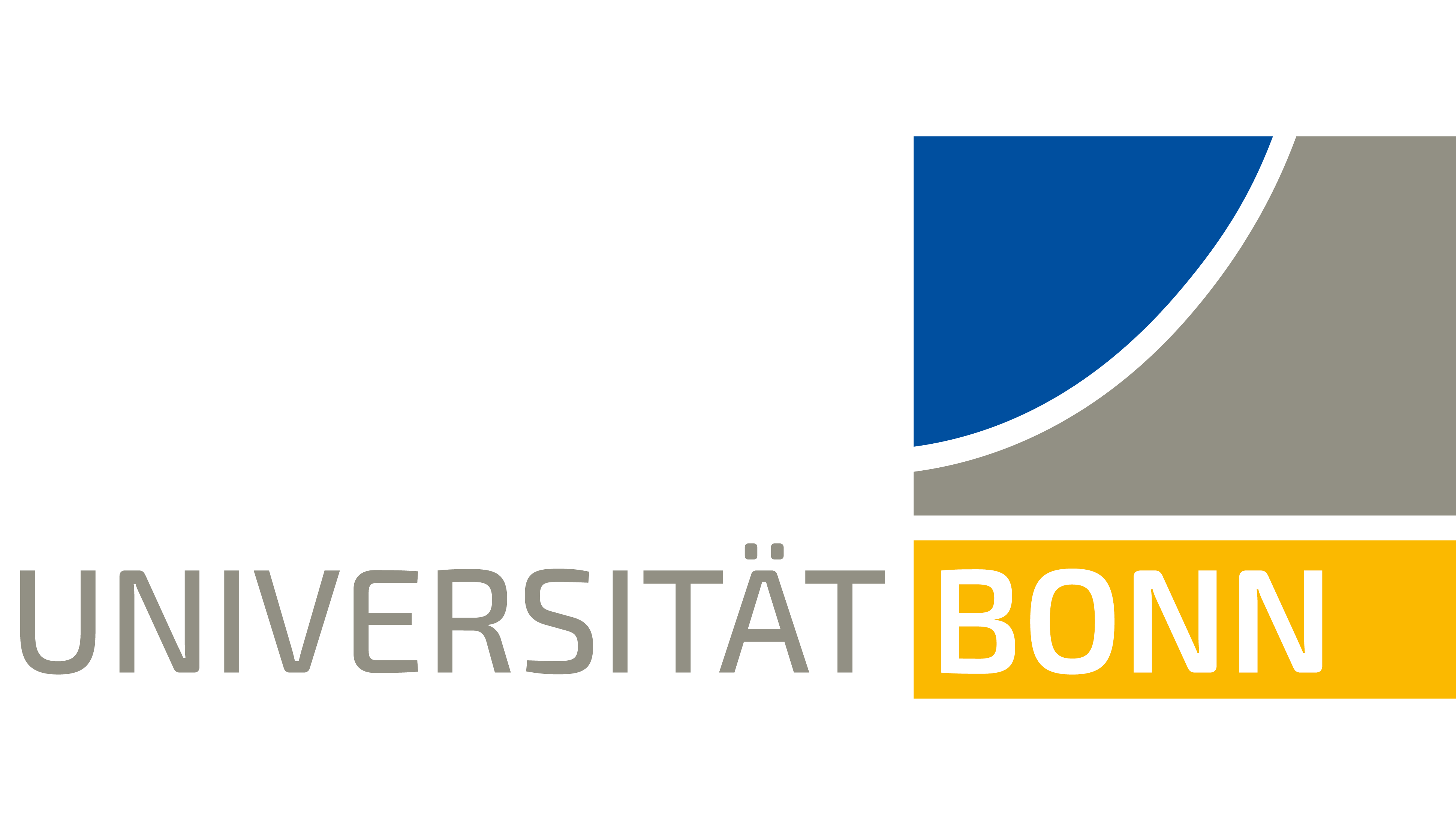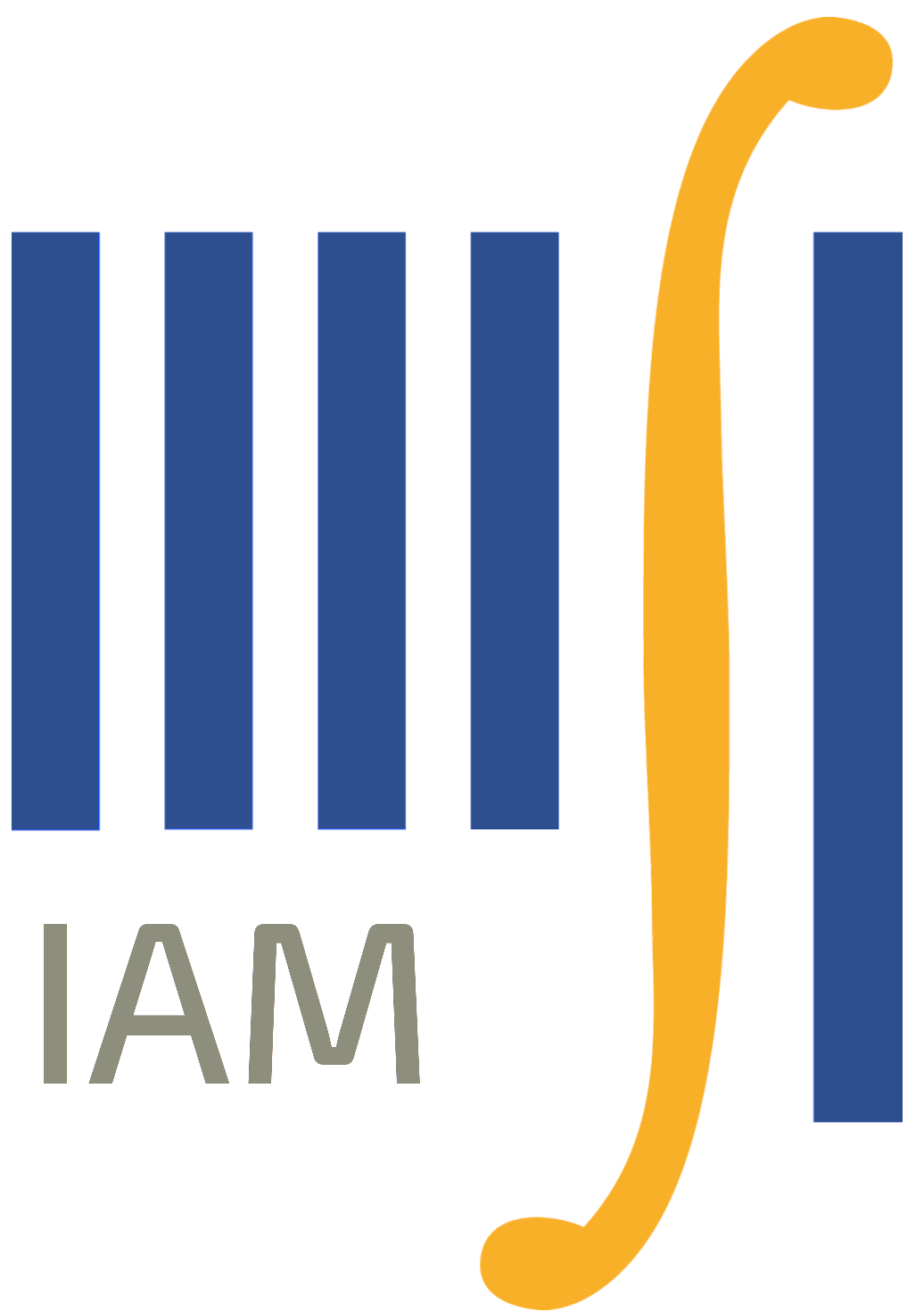Graduate Seminar on New Developments in PDE (S5B3)
In this research-oriented seminar we discussed recent topics in Calculus of Variations and Inverse Problems.
The seminar is held by Prof. Angkana Rüland and Antonio Tribuzio.
Find the schedule below.
At following link, you can have a look at the programs of the last semesters to get an idea
Info: the seminar will take place on Fridays from 14 c.t. to 16, in room N 0.003.
News: none.
Calendar
17.10.2025: Guillermo Pérez
The Calderón Problem for fractional Schrödinger operators with a drift term on closed manifold
Abstract: In this talk we will study an analog of the original Calderón problem for the case of a fractional Schrödinger operator with a gradient term. We will prove that under the right conditions, with only the Cauchy data given by the operator on an observable set, we can reconstruct an unknown closed Riemannian manifold up to a diffeomorphism.
The novelty of our result is that besides the reconstruction of the metric, we can also recover the potential and drift term up to a gauge transformation if time allows it we will also discuss how to generalize it to the case where we have higher order terms.
This results are in collaboration with Angkana Rüland and come from the work on my master thesis as well as the recent paper by T. Cai and X. Chen (2025).
24.10.2025: Hendrik Baers
Quantitative reduction of a nonlocal Calderón type problem to the local Calderón problem
Abstract: The Calderón problem is one of the classic examples of an inverse problem. It is about determining the conductivity of a medium by making voltage and current measurements on its boundary. Some of the main questions of interest are about uniqueness and stability of this reconstruction.
In this talk, we will consider the fractional (or nonlocal) and the local formulation of a Calderón type problem and discuss how these two are related. In particular, we will show that stability estimates for the local problem can be transferred to stability estimates for the nonlocal problem.
The results presented in this talk are based on joint work with Angkana Rüland.
31.10.2025: Alessandro Felisi
Subsampled inverse problems, sparsity, and compressed sensing
Abstract: In this talk, I will discuss a class of linear inverse problems in which severe ill-posedness arises from subsampling a more stable problem. Such settings are motivated, among others, by medical imaging applications such as Magnetic Resonance Imaging, Computed Tomography, and Photoacoustic Tomography. I will explain how certain sparsity priors - arising naturally in these applications - can be leveraged to regularize the inverse problem through suitable randomized measurements. Finally, I will show how tools from compressed sensing theory allow one to precisely quantify the relation between the number of measurements required to stabilize the problem and the intrinsic dimensionality of the sparsity prior.
07.11.2025: Timo Hofmann
Energy Scaling and Branched Microstructures in a model for Shape-Memory Alloys with $SO(2)$-Invariance
Abstract: Models for shape-memory alloys based on minimizing a non-convex elastic energy $\int_\Omega W(Du)$ are scale-invariant and thus cannot predict the characteristic length scale of the fine microstructures observed in nature. By adding a singular perturbation in the form of a surface energy term, $\epsilon |D^2 u|(\Omega)$, we introduce a competition between the elastic energy and the surface energy, which determines an optimal microstructure length scale.
This talk presents the findings of Chan and Conti on this model in a vectorial, $SO(2)$-invariant setting, where they investigate two different well sets, $K_1$ and $K_2$. We explore their analysis, contrasting the classical $E \sim \epsilon^{2/3}$ scaling (for $K_1$) with a surprising, "softer" $E \sim \epsilon^{4/5}$ scaling (for $K_2$), which arises from a degenerate rank-one connection. The presentation will focus on the proof of this $\epsilon^{4/5}$ lower bound as detailed in the paper.
14.11.2025: Daniel Linn
Fractional Anisotropic Calderón problem on closed Riemannian manifolds
Abstract: For any inverse problem the question of uniqueness and stability is of major interest. In this talk, we present the uniqueness result for the Fractional Anisotropic Calderón problem on closed Riemannian manifolds based on the homonymous paper of A. Feizmohammadi, T. Ghosh, K. Krupchyk and G. Uhlmann from 2021.
Further, we discuss ideas to stabilize the uniqueness proof. These results come from the work on my master thesis under the supervision of Angkana Rüland and Alessandro Felisi.
21.11.2025: Edvin Svenungsson
Energy minimizing twinning with variable volume fraction, for two nonlinear elastic phases with a single rank-one connection
Note: this talk is based on the homonymous paper by S. Conti, R. Kohn, and A. Misiats.
28.11.2025 (at 14:15): Mija Delija
Viscosity Solutions for Fully Nonlinear Elliptic Equations
Note: this talk is based on the speaker's Bachelor-thesis work, supervised by Angkana Rüland and Lennart Machill.
28.11.2025 (at 15:15): Christian Noaghiu
Entropy regularization for a linearized $T_3$-structure
Note: this talk is based on the speaker's Bachelor-thesis work, supervised by Angkana Rüland and Antonio Tribuzio.
05.12.2025: Lennart Machill
Multi-well problems of staircase type in linearized elasticity
Abstract: Previous talks in this semester have shown how real-space localization methods can be used to obtain lower scaling bounds for singular perturbation models in (nonlinear) elasticity. The final goal of the talk is to present a complementary perspective based on Fourier-based localization. To illustrate this approach, we begin with the stress-free case of a three-well problem in linearized elasticity, which offers useful insights for its quantification. Then, we discuss the optimal energy scaling, and compare the scaling law with the results by Chan and Conti (2015), which were presented earlier in this semester. The talk is based on joint work with Angkana Rüland.
12.12.2025: Oskar Engelfried
H-measures, a new approach for studying homogenisation, oscillations and concentration effects in partial differential equations
Note: this talk is based on the homonymous paper by L. Tartar.
- 19.12.2025: Merry Christmas (i.e. no meeting)
09.01.2026: Linus Engelfried
Quantitative aspects of the rigidity of branching microstructures in shape memory alloys via H-measures
Note: this talk is based on the homonymous paper by T. Simon.
16.01.2026: Antonio Tribuzio
Multiscale analysis and homogenization of nonlocal thin films
Abstract: In this talk, we will introduce a nonlocal, variational model for thin films. We consider family of functionals of convolution-type defined on a thin domain of thickness $\gamma$ with the size of the most effective interactions between points being of order $\varepsilon$.
After discussing the correct rescaling, we study the $\Gamma$-convergence of these energies as both parameters go to zero to a local integral functional defined on a lower dimensional domain. In the case of periodic (convex) homogenization, we can show that a "separation of scales" takes place.
This is a work in progress in collaboration with Nadia Ansini.
23.01.2026: Noah Piemontese-Fischer
A degenerate two-well problem
Abstract: In this talk, we study an incompatible two-well problem that exhibits some surprising flexibility properties. We consider two variants of the problem: one without gauge invariance and one with $SO(2)$ invariance. After characterizing the relaxed energies, we investigate the scaling behavior of the associated singular perturbation models. In this context, we derive upper bound constructions and discuss some partial results regarding lower bounds.
The talk is based on ongoing joint work with Lennart Machill and Angkana Rüland.
- 30.01.2026: End-of-term greetings (i.e. no meeting)


